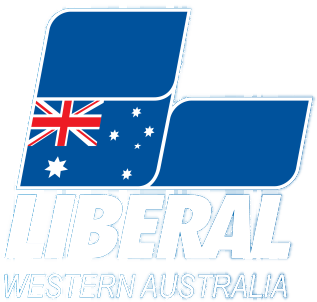From being one of life’s pleasures, flying in Australia has become an anxious business, which sees us reloading Qantas or Virgin apps throughout the day, expecting the worst, while having to make contingencies for possible delays or cancelled flights.
Australians who fly for work, visit family, for medical appointments, holidays, and a host of other reasons, have the right to say enough is enough.
Last week’s Domestic Airline Competition in Australia report
The report found that, in December 2023, 5 per cent of flights were cancelled, representing more than 2200 departures – more than double the long-term average of 2.2 per cent.
Just 63 per cent of flights arrived on time, well below the long-term average of 81 per cent.
We also heard in Senate estimates last Monday that when two air traffic controllers at Sydney Airport called in sick, flights across the eastern seaboard of Australia had to be cancelled, an indicator that at least some of the cancellations and delays are the responsibility of the federal Minister for Transport to fix.
In November last year, 45 per cent of flights were cancelled or delayed on the “golden triangle” routes between Brisbane, Sydney and Melbourne, meaning one of the busiest routes in the world is also one of the most unreliable.
And if you happen to find yourself at Broome Airport in WA’s Kimberley region, there’s only a 50 per cent chance your flight will leave on time.
Customer service is also headed in the wrong direction.
The ACCC says it has seen a dramatic increase in the number of inquiries on airline matters.
In the first nine months of 2023, they were 179 per cent higher than 2018 and 100 per cent higher than 2019.
We expect an affordable airline system where your flights take off and land on time, and your bags arrive with you at your destination.
Domestic airfare prices are trending down, falling 13.4 per cent in the year to November 2023. But they remain far too high.
This reality is even harder for air travellers to swallow when they think back to the record profit of $2.47 billion announced by Australia’s largest carrier, Qantas, last August.
Former ACCC chairman Allan Fels recently pointed out that this profit coincided with Qantas’ flight cancellation rate more than doubling.
The February 2024 Domestic Airline Competition in Australia report is the first published since the watchdog resumed airline monitoring late last year.
It was originally a Coalition government initiative, but Labor allowed the regime to lapse, due largely to pressure from Qantas.
This decision went against the advice of the ACCC itself and the sentiments of every other industry stakeholder, including airlines, airports and travel agencies.
It was characteristic of the Albanese government’s stifling of airline competition, both domestically and internationally – the highest profile example of which was the decision of Transport Minister Catherine King to block Qatar Airways’ application to add extra flights into Australia.
Coalition pressure in the form of a private senator’s bill from us as the respective shadow ministers for competition (Smith) and transport (McKenzie) forced Treasurer Jim Chalmers’ hand.
In November 2023, he reluctantly restored this vital monitoring process and the clarity it provides consumers in an environment that’s currently stacked against them.
Now we are having to do it again.
We are co-sponsoring a second private senator’s bill, aimed at delivering Australian airline consumers the protections they need.
The draft bill requires the establishment of long overdue minimum standards of service for travellers and – importantly – compensation for those who have had their plans upended.
Similar laws exist in Europe and the US, where Qantas is bound to adhere to them, so why not in Australia?
Neither the airlines nor the airports are likely to embrace this bill, but unless there are serious efforts by the Albanese government to improve flight reliability, including reforming the slots system at Sydney airport, changing the culture at AirServices Australia, and improving competition within the aviation sector, nothing will change.
It’s clear that there has not been a sufficient disincentive that would prompt airlines to improve their operations until this point.
They have had free rein to cancel flights and lose baggage while passengers, in most cases, bear the expense and inconvenience.
We are now in a cycle where the Coalition acts proactively where Labor will not.
Our “Pay for Delay” legislation will be another step in tilting the balance of power back in favour of consumers, rather than airlines.
Because that is the way it should be.
